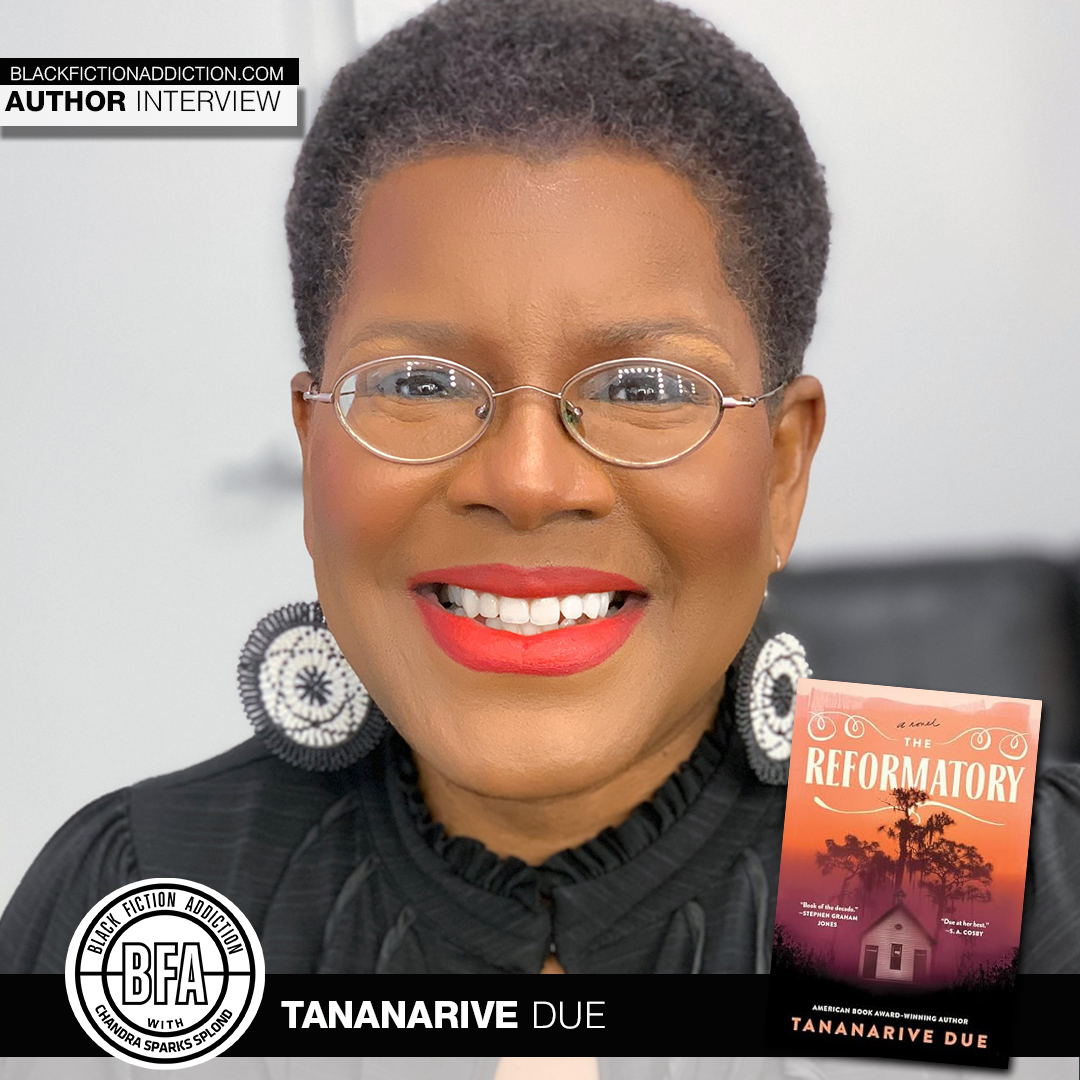
Author extraordinaire Tananarive Due is using real life as a basis for her latest release. I recently spoke with her about The Reformatory.
Tell me about your latest book.
My latest book (10/31) is called The Reformatory. It’s about a haunted boys’ prison in the Jim Crow South. Part of the story is from 12-year-old Robert’s point of view as he must grapple with terrors from both the living and the dead inside the Reformatory—and the other point of view is his teenage sister, Gloria, who is trying every way she can think of to free him as she navigates Florida during segregation. Robert is afraid to be at a haunted reformatory until he realizes the ghosts aren’t his biggest problem, and he even becomes a “friend” to a “haint.” (Although a friendship with a ghost is tricky!)
What inspired you to write it?
Soon after my mother died in 2013, my family learned that she had an uncle named Robert Stephens who died at the Dozier School for Boys in 1937. My father, “Freedom Lawyer” John Due, and I were both grieving as we made trips to the Dozier School grounds to hear from survivors at a meeting. Later, my father, husband (Steven Barnes) and nine-year-old son, Jason, joined us at the Dozier School’s cemetery, nicknamed Boot Hill, when University of South Florida Erin Kimmerle led an excavation to search for the remains of boys who were in unmarked graves.
I was so struck by the sadness of this institution’s reign of terror that I knew I had to write about it—but not as nonfiction. I co-wrote a civil rights memoir with my late mother, Patricia Stephens Due, called Freedom in the Family: A Mother-Daughter Memoir of the Fight for Civil Rights, but there were already other memoirs about the Dozier School from people who had actually been there.
So, I decided to fictionalize Robert Stephens and his experience to represent many nameless, faceless young people who suffered and lost their lives at the Dozier School. I made him 12 instead of 15 and changed the year to 1950, since I knew that era better from my mother’s stories. I also used ghosts to try to make the violence at the institution a bit more removed from my protagonist.
Gloria’s character is based on my late mother, Patricia Stephens Due. And the civil rights attorney, John Dorsey, is based on my father, John Dorsey Due, Jr.
When did you fall in love with the written word?
I’ve wanted to be a writer for as long as I can remember, since I wrote a picture book called Baby Bobby when I was four. I wrote picture books and stories all through childhood, including one inspired by Alex Haley’s Roots. But I didn’t understand how much writing could save my life until my first Black Lives Matter moment when a Black motorcyclist named Arthur McDuffie was beaten to death by police when I was 14. I wrote a long poem called “I Want to Live” about the society I wanted to live in, and immediately the crushing feeling in my chest went away. My mother told me I was lucky that I could express my emotions through writing.
What’s the best part of being an author?
To me, being a writer is the part of me who creates alone, and being an “author” is the way I present myself and my writing to the world. The best part of having the ability to reach so many people through stories and help enrich their lives and ways I often never learn: giving them escape, giving them courage, giving them inspiration. I hear the stories, and it makes me feel so blessed.
What’s the hardest part of being an author?
I’m basically an introvert, so it does take me a lot of energy to psyche myself up to be outside of my house, especially since COVID. While I’m always excited when a publisher wants to support my book with travel, I find travel to be more and more difficult, too. I love being at home.
What books have you read lately and loved?
There is so much terrific Black Horror out right now, so I’ll just start with those. Jordan Peele just published an anthology he helped curate called Out There Screaming (I have a story in there too). Haunted house fans will love Johnny Compton’s novel The Spite House. Hulu already has a series based on The Other Black Girl, so readers definitely should catch up with that one. Victor LaValle, whose series The Changeling is currently on Apple TV Plus, also has a new novel called Lone Women that I read recently. And I have to plug a book called Jackal by Erin E. Adams, which is a missing person’s story with a supernatural twist.
What book(s) are you most excited to read next?
I’m looking forward to the next books by those authors.
Who would you cast in a movie to play your main characters?
The protagonists in The Reformatory are very young, so I don’t really have actors in mind. But when I get traction on adaptations of some of my other works, I would love to work with Nicole Beharie and Angela Bassett.
What’s next for you?
I just won a World Fantasy Award for a short story called “Incident at Bear Creek Lodge,” and I’m expanding that out to a full-length screenplay. And that serve(s) as the outline for my next novel.
I also teach Black Horror and Afrofuturism (Black Speculative Arts) at UCLA, in addition to writing novels, short stories, comics and screenplays.
Use the Black Fiction Addiction affiliate link to purchase your copy of The Reformatory.
To learn more about Tananarive Due, connect with her on social media.
Instagram: https://www.instagram.com/tananarivedue/
